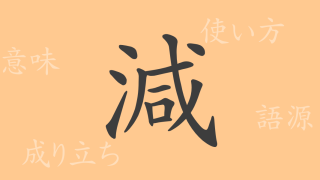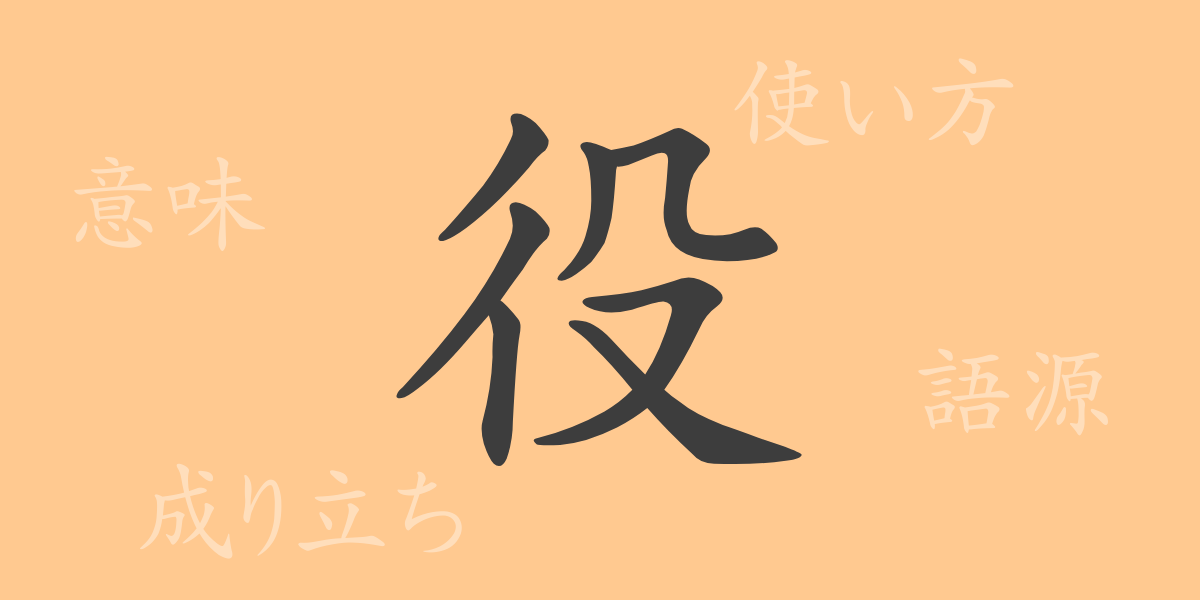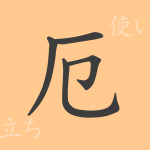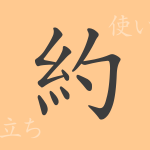The beauty of the Japanese language is reflected in its kanji characters. Each character carries deep meanings and history, which tell a story of the language’s depth. In this article, we shine a spotlight on the commonly used kanji “役” (yaku/eki), exploring its origins, meanings, usage, pronunciations, and expressions. Together, let’s delve into the rich world that the character “役” (yaku/eki) embodies.
The Origins of 役 (yaku/eki)
The kanji “役” (yaku/eki) can trace its origins back to ancient Chinese oracle bone script. Originally, “役” (yaku/eki) derived from a pictogram depicting a person carrying a load on their shoulders. Over time, its shape evolved into the current form of “役” (yaku/eki). In ancient times, it was used to signify labor or service, and as it became more integral to people’s lives, it took on broader meanings.
Meanings and Usage of 役 (yaku/eki)
The kanji “役” (yaku/eki) is used to denote roles, jobs, and duties. It often refers to the functions or actions that people or things are supposed to perform in specific contexts. For example, playing a “役” (yaku/eki) in a play, being of “役” (yaku/eki) to society, or something being useful as in “役に立つ” (yaku ni tatsu). It is used in various contexts to signify these aspects.
Pronunciations, Stroke Count, and Radical of 役 (yaku/eki)
Let’s also look at the pronunciations and structure of the kanji “役” (yaku/eki).
- Pronunciations: The on’yomi (音読み) is “エキ” (eki), and the kun’yomi (訓読み) is “やく” (yaku).
- Stroke count: It has a total of 7 strokes.
- Radical: The radical is 彳 (ぎょうにんべん, gyou nin ben).
Idioms, Phrases, and Proverbs Using 役 (yaku/eki)
There are numerous idioms, phrases, and proverbs that include “役” (yaku/eki), each reflecting the richness of Japanese expression. For instance, “役立つ” (yaku datsu) means to be practical, “役者” (yaku sha) refers to an actor or performer, “役所” (yaku sho) is a government office, and “役目” (yaku me) signifies a duty to be fulfilled. Additionally, the proverb “立つ鳥跡を濁さず” (tatsu tori ato wo nigosazu) includes the kun’yomi of “役” (yaku), teaching that one should not leave a mess behind when departing.
Conclusion on 役 (yaku/eki)
Each kanji character encapsulates the history and culture from its formation to the present day. “役” (yaku/eki) is no exception, evolving from ancient Chinese pictograms to its widespread use in modern Japanese society. Through this article, we hope you gain a deeper understanding of the rich meanings and usage of “役” (yaku/eki), and reappreciate the depth of the Japanese language. For both Japanese learners and native speakers, “役” (yaku/eki) is an indispensable character in mastering the language.

























